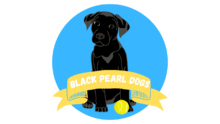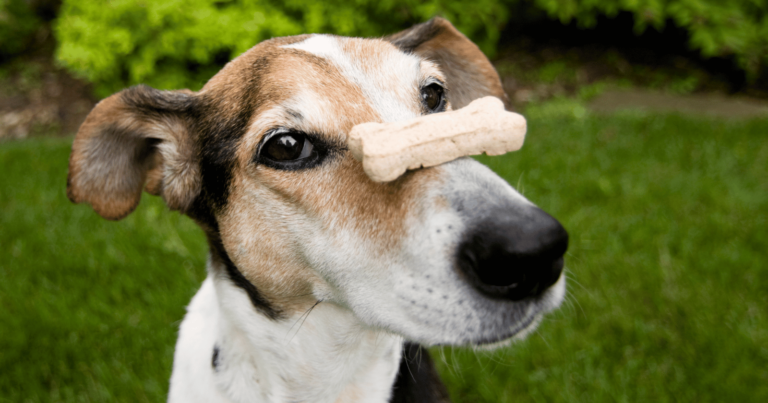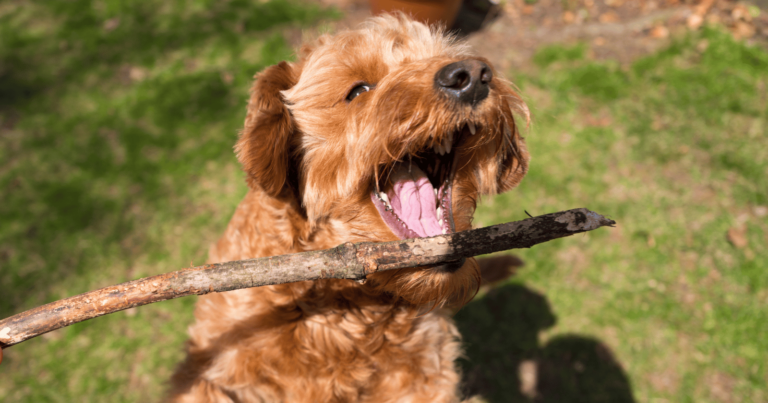Your dog is more than just a pet – they’re a member of your family.
And just like everyone else in the family, they have specific nutritional needs to stay healthy.
Understanding your dog’s nutritional needs can seem like a daunting task.
But don’t worry, I’m here to simplify things for you.
In this article, I’ll be walking you through the 9 essential nutrients your furry friend needs to thrive.
1. Protein
The first thing that comes to mind when we talk about dog nutrition, is protein.
Just like in humans, proteins are essential for dogs too.
They are the building blocks of cells, tissues, organs, enzymes, hormones and antibodies.
Without sufficient protein, your canine companion can suffer from a variety of health issues.
This includes a weakened immune system and poor muscle development.
Remember that the quality of protein matters too.
Your dog needs a diet rich in high-quality, animal-based proteins.
So, whether it’s chicken, beef, fish or lamb in their bowl, make sure it’s packed with protein.
But don’t forget, not all proteins are created equal.
Make sure your pup is getting the good stuff!
2. Fats
Now, before you raise an eyebrow at the word ‘fats’, let me clarify something.
Not all fats are bad, especially when it comes to our furry friends.
My own dog, Max, is a testament to this.
I used to be wary of giving Max food with fats, thinking it would make him overweight.
However, my vet explained that healthy fats are actually essential for dogs.
Fats provide the most concentrated source of energy for dogs.
They also aid in nutrient absorption and promote healthy skin and a shiny, healthy coat – something I noticed when I started adding healthy fats to Max’s diet.
His coat became glossier and he seemed more energetic.
The key is to ensure that the fats are healthy ones – think omega-3 and omega-6 fatty acids.
Fish oil, flaxseed, and chia seeds are all great sources.
3. Carbohydrates

Carbohydrates might seem less important compared to proteins and fats, but they play a crucial role in providing energy for your dog.
They’re broken down into glucose, which is used to fuel body functions and physical activities.
While dogs don’t technically require carbohydrates to survive, they do help to provide a healthy, balanced diet.
Plus, they aid in digestion by providing fiber.
A common misconception is that dogs are carnivores.
In reality, dogs are omnivores and can digest grains and other carbs quite efficiently.
Did you know that wild wolves – the ancestors of our domesticated dogs – often consume the stomach contents of their plant-eating prey?
This content is rich in carbohydrates, proving that even in the wild, dogs are designed to consume more than just meat.
So, when planning your dog’s diet, don’t forget to include healthy carbs like sweet potatoes, brown rice and oatmeal.
4. Vitamins
Vitamins are the magic micro-nutrients that support essential functions in your dog’s body.
From boosting the immune system to supporting bone health, they’re indispensable to your furry friend’s overall health.
Each vitamin plays a unique role.
For instance, Vitamin A is crucial for vision and immune function, while Vitamin D helps in the absorption of calcium and phosphorus for strong bones.
It’s important to remember that dogs can’t produce all necessary vitamins within their bodies and these need to come from their diet.
Adding a variety of fruits and vegetables to your dog’s diet can help ensure they’re getting a good mix of vitamins.
But some fruits and vegetables aren’t safe for dogs, so always do your research or consult with your vet.
5. Minerals
Just like vitamins, minerals play an important role in your dog’s health.
They’re crucial for strong bones and teeth, nerve function, and the production of hormones and enzymes that regulate the body’s processes.
Minerals such as calcium and phosphorus are essential for bone development.
Others like zinc and selenium play a vital role in maintaining the health of your dog’s skin and coat.
However, balance is key when it comes to minerals.
An excess or deficiency can lead to health problems.
For instance, too much calcium can hinder bone growth in puppies, while too little can lead to bone disease in older dogs.
It’s usually best to provide minerals through a balanced diet rather than supplements.
Foods rich in minerals include meat, bones, grains, vegetables, and fruits.
6. Water
Water may not be a nutrient in the traditional sense, but it’s undoubtedly one of the most essential elements your dog needs to thrive.
I can’t stress enough the importance of clean, fresh water for your furry friend.
Just think about it – water makes up about 70% of a dog’s body.
It’s involved in almost every bodily function, from digestion to temperature regulation.
Without sufficient water, your dog can become dehydrated, leading to serious health issues.
And let’s not even think about the worst-case scenario.
So please, make sure your dog always has access to fresh drinking water.
Their health and happiness depend on it.
Because at the end of the day, we want our dogs not just to live, but to thrive.
7. Fiber

Fiber is often overlooked when it comes to dog nutrition, but it’s incredibly important for their digestive health.
I learned this the hard way when my dog, Max, started having digestive issues.
He was lethargic, not eating well and had frequent bouts of constipation.
It was heartbreaking to see him so uncomfortable and not his usual playful self.
My vet suggested adding more fiber-rich foods to Max’s diet.
We introduced things like sweet potatoes, pumpkins and carrots into his meals.
Within a few weeks, I saw a significant improvement in Max’s digestion.
Fiber not only helps regulate your dog’s bowel movements but also aids in weight management by making your dog feel fuller for longer.
8. Antioxidants
Antioxidants are a group of compounds that protect your dog’s body against the damaging effects of free radicals.
These free radicals can cause cell damage and have been linked to aging and disease.
Incorporating antioxidants into your dog’s diet can help strengthen their immune system, slow down the aging process, and even reduce the risk of heart disease and cancer.
Good sources of antioxidants for dogs include blueberries, spinach, kale, and carrots.
But remember, moderation is key.
Too much of a good thing can lead to digestive issues.
9. Essential Fatty Acids
Last but definitely not least are essential fatty acids – specifically Omega-3 and Omega-6.
These fats are vital for skin and coat health, brain function, and inflammation control.
One thing to note is that dogs can’t produce these fatty acids naturally.
They must get them from their diet. This is why it’s crucial to include food sources rich in these fats, like fish oil or flaxseed.
But perhaps the most important thing to remember is that balance is key.
Too much Omega-6 can lead to inflammation, while Omega-3 has anti-inflammatory properties.
The ideal ratio of Omega-6 to Omega-3 should be around 5:1 to 10:1.
Getting this balance right can significantly improve your dog’s health and quality of life.
It’s all about balance
Understanding the nutritional needs of our dogs isn’t just about knowing what they need.
It’s about understanding how these nutrients interact and balance each other for optimum health.
Take for instance, the interplay between Omega-3 and Omega-6 fatty acids.
While both are essential, an imbalance can lead to health issues.
Similarly, minerals are crucial for your dog’s health, but too much or too little can be harmful.
This delicate dance of balance is a testament to the complexity of the canine body.
A beautiful symphony of nutrients working together to keep your furry friend healthy, happy, and full of life.
As dog owners, we hold the responsibility – and the power – to provide our pets with the nutrition they need to not just survive, but thrive.














